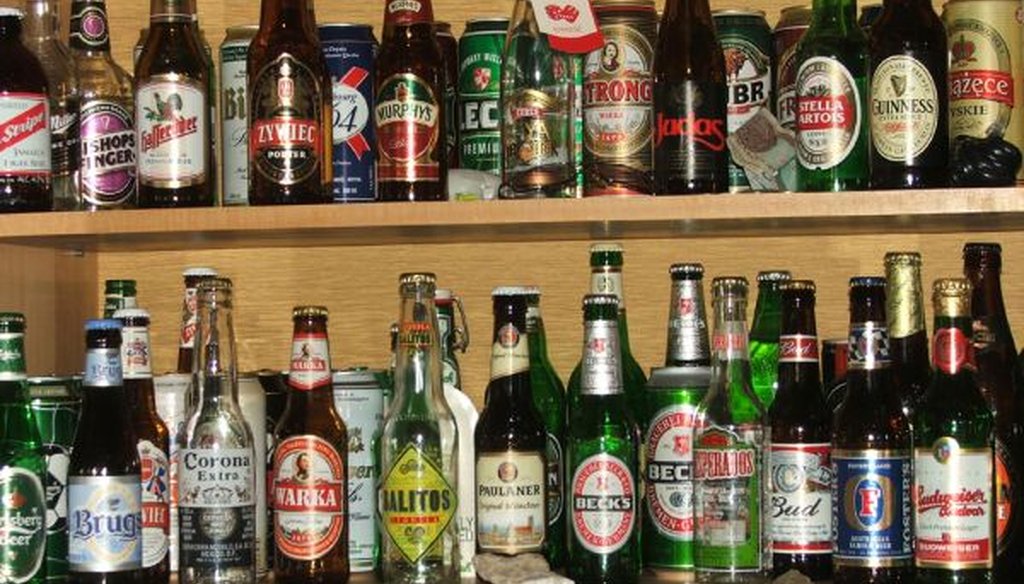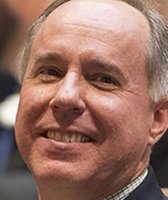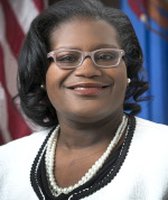Get PolitiFact in your inbox.

Has teen drinking in Florida really declined precipitously? (Wikimedia commons)
From pipelines to politics to pilsners to political parties (and their conventions), our five favorite fact checks from July 2022 covered a wide range of topics. To give a better sense of what resonated over the past month, we’re changing our protocols on our High Five.
We’ll include some of the most-clicked items, of course, but also some others that are especially relevant or timely – such as the ones below about the Republican National Convention.
Here are our five hot picks for last month:
1. U.S. Sen. Ron Johnson, R-Wis.: "Thanks to failed Dem policies, beer is 9.1% more expensive."
Johnson’s campaign pointed to U.S. Bureau of Labor Statistics data, which shows the average price of a malt beverage in an average U.S. city over the years.
According to the data, the average cost of 16 ounces of beer went from $1.50 in April 2020 to $1.66 in June 2022, which amounts to a 10.7% increase in the retail price. But there’s more to it than that.
Some of that increase came on Trump’s watch, and prices have actually been steadily rising since the late 1990s.
What’s more, while policies enacted by Democrats, such as the American Rescue Plan, have played a role, there are many other factors that are influencing the rising costs of goods and services, such as the fallout from the pandemic, the war in Ukraine, changes in the labor market and rising energy costs.
We rated this claim Half True, meaning it is partially accurate, but leaves out important details or takes things out of context.
2. Former President Donald Trump: The Wisconsin Supreme Court decision declaring ballot drop boxes illegal "includes the 2020 Presidential Election."
Trump, who fell nearly 21,000 votes short of winning Wisconsin in 2020, has never accepted defeat.
On July 8, 2022, the state Supreme Court ruled that Wisconsin law does not permit absentee ballot drop boxes anywhere other than election clerk offices and that only state lawmakers may make new policy stating otherwise — not the Wisconsin Elections Commission, which had issued guidance to clerks allowing them.
Trump claimed repeatedly the decision is retroactive to 2020, and — in his view — could somehow cancel the result.
That claim defies logic, and the court’s order itself. The state Supreme Court itself has explicitly permitted the drop boxes in some past elections. Its order is prospective — for the future, not the past. And that assessment came from the group that filed the lawsuit.
We rated the claim Pants on Fire.
3. Milwaukee Mayor Cavalier Johnson: The Republican National Committee is "a $200 million economic infusion into our communities."
Johnson and other city officials have boasted of the benefits of holding the Republican convention – including one boast that we found goes too far.
While the $200 million estimate from VISIT Milwaukee is grounded in the experience of Cleveland in 2016, an expert who has studied a range of past conventions say it is "wildly exaggerated." What’s more, even if the anticipated spending figures are reached, much of the money would quickly leave the local economy for other places – such as the corporate owners of hotels, and such.
We rated the claim Half True.
4. Liberal groups: "Milwaukee’s hotels and restaurants are already filled during the summer. The RNC convention will simply replace those who normally visit our city."
A coalition of liberal community groups from across the state has decried Milwaukee’s effort to host the RNC.
The groups have a point about the economic impact, in that the baseline is not zero. There are visitors who stay at hotels, and diners who eat at restaurants with or without a convention. But the groups vastly overstate the point by suggesting there would be no increase or benefit at all from the RNC.
Statistics have shown a typical Milwaukee hotel occupancy rate of about 76% in the month of August. And clearly all restaurants are not 100% full either. So there clearly would be some economic benefit to bringing the event to the city, even considering the substitution effect.
We rated the claim Mostly False.
5. GOP gubernatorial candidate Tim Michels: The cancellation of the Keystone XL pipeline by Joe Biden "killed hundreds of jobs, sent gas prices way up."
Let’s start with the jobs.
According to a post on Michels Corp.’s website, the company expected to employ more than 350 people for a contract to build new pump stations in the U.S. A post on Michels Canada’s website said the company expected to hire 1,000 workers each year over the two-year construction period for its work on a Canadian portion of the pipeline.
But it’s important to note that the jobs were temporary. Once construction was complete and the pipeline was operational, about 50 total employees were required in the United States: 35 permanent employees and 15 temporary contractors.
As for gas prices, the pipeline decision came more than a year before the Russia’s Feb. 24, 2022 invasion of Ukraine. That sent gas prices rising sharply, peaking at $4.33 a gallon on March 11 before a slight decline. They then started rising again from late April through mid-June, when they reached a record $5.01 per gallon on June 13 before declining again.
In any case, the Keystone XL would not have yet been operational, and once it is, it would only have a marginal effect on prices.
We rated this claim Mostly False.
Check out those Tony Evers promises
By the way, PolitiFact Wisconsin has updated our Evers-O-Meter, which tracks progress on the campaign promises made by Gov. Tony Evers. (We did the same for former Gov. Scott Walker, a Republican.)
We did two updates on recent promise-ratings for Evers, which can be found here and here.
You can find all of his promises – and our ratings – here.
Our Sources
PolitiFact Wisconsin

















































